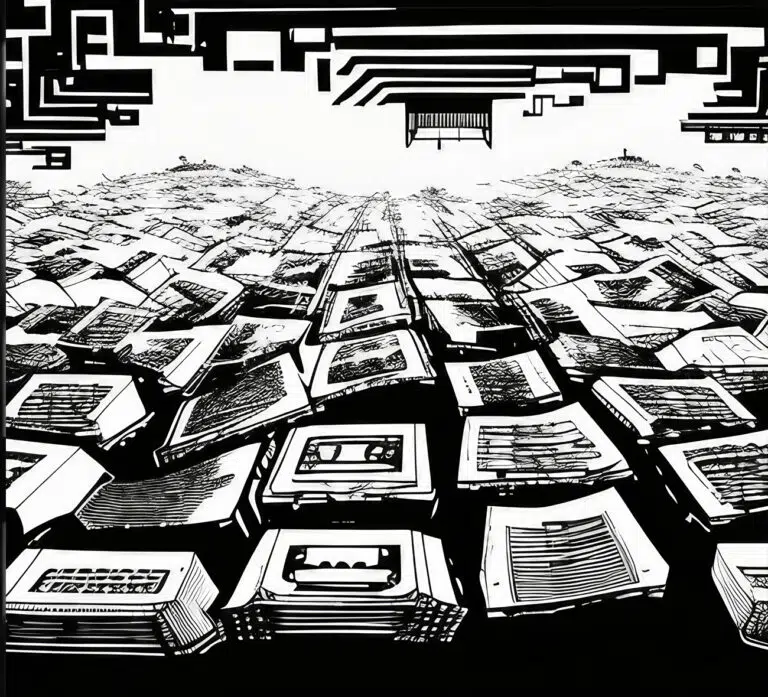Laurence is back with Patricia Auer, our Chief Operating Officer, for Part 2 of the Raion podcast episode! They’re discussing gaming, the metaverse, and female representation in blockchain and crypto. Let’s join the conversation and see what gems of wisdom they have to share!
If you didn’t catch Part 1, click here. And if you want to watch the full conversation, check it out here!
Women in Blockchain
‘Fundamentally it’s very similar to running a company in another space except that it’s far more fun.”
Laurence: Blockchain seems to be attracting a lot of women who don’t necessarily have a tech background. Why do you think that is?
Patricia: If you traditionally think about tech, we think about Microsoft and IBM and it’s a little dry. In blockchain, you’ve got move to earn a space, health and wellness, you’ve got social media companies, gaming, metaverse, you’ve got NFTs in terms of digital art that you can create. This is a vast generalization, but I think a lot of women like to be creative. The amount of opportunities within blockchain to be creative versus the traditional tech spaces is just so different.
Think about banking, it’s pretty dry. Yes, you have the parties, but it’s dry and boring. There’s politics, there’s a ceiling not just for women, but for men as well. In crypto, you can really carve out your own career and your own path. You can be a founder right from day one even if you don’t have the technical knowledge. If you’ve got the creative side, or a really interesting use case, you can build your tech team and they can build that for you. Lots of opportunities and I think that’s why a lot of women are coming into the space.
Laurence: It’s definitely an interesting industry.
Paricia: A lot of female founders that I speak to, their projects are very creative or even creative in terms of the application of blockchain. I don’t necessarily find so much in (I might get in trouble for this) male Founders within the space.
Whenever there’s a bull run, a whole bunch of people come into the space or start new projects and they’re all within the same verticals. When you know we had the rise of the NFTs, the amount, especially at the accelerator, the amount of applicants I saw that were all building the same type of NFT marketplace, there was no thought put into it.
You would then see female founders coming up with projects very specifically curated for either fashion, art, creators or platforms, and things like that. There was something more unique and creative about their idea, in my observation.
Laurence: It’s interesting the amount of women that I see leading in this space that you’d think, just because of how technical it is, would be like male-dominated.
Patricia: It’s a great thing. As long as someone has an idea or they’re great at operating. If you’re an operator and you know how to manage and lead a company, you can build a tech team. And again, within blockchain, it’s so varied even within the developers and the engineers that you can’t just have one person do that for you. It really needs to be a whole bunch of people. I think this is why it works because ultimately a company regardless of what industry it is, there’s a lot of similarities in running a company. It’s management, hiring, admin, logistics, accounts, marketing.
Fundamentally it’s very similar to running a company in another space except that it’s far more fun.
The Metaverse and Gaming
“There was a game called Dope Wars which was the most simple interface, and it was really just about becoming a dealer and how much money you could make on weapons and drugs. It was great. Then I became a lawyer.”
Laurence: When I think about the customer base for gaming, it’s very male-dominated. Growing up, my friends and I all played video games. I didn’t know any girls that did. What are your thoughts?
Patricia: I’m a little bit of a gamer. I really enjoy watching others play, especially simulation games like Assassin’s Creed or Grand Theft Auto. I love those because it’s like an interactive movie and it’s teamwork.
Candy Crush was huge in Asia. Most of the people that I knew who played were actually women.
Laurence: What was the main game as a kid that you loved?
Patricia: I think it’s The Sims. And then I moved on to SimCity, then all the variations of Assassin’s Creed and GTA, those kinds of games. I don’t know if I should say this but the other one that I really loved was kind of mafia or drug wars. There was a game called Dope Wars which was the most simple interface, and it was really just about becoming a dealer and how much money you could make on weapons and drugs. It was great. Then I became a lawyer.
Laurence: I’m actually having flashbacks to a game on the Amiga 500. Great games. Going back to the world of blockchain, there seems to be a lot of excitement in the metaverse and the gaming world. But I’m getting mixed reviews on the metaverse right now.
Patricia: I’m gonna take a little bit of a step back and just talk generalization on high levels. I think the metaverse isn’t really a utility per se. I’m still a little confused on why we are using blockchain for the metaverse. Graphics, when it’s blockchain-centric are still not great.
I also think a big issue with the metaverse is there’s too many metaverses. So if we are trying to combine and consolidate the entire industry and bring in outside players, like HSBC got a piece of land in the Sandbox, I feel like it defeats the purpose by having a million and one metaverses.
I’ve been pitched quite a lot at the accelerator. But if I think of it from a personal level, why do I want to go into the metaverse and buy Nike shoes? I would like to go into a physical store and try them on, walk around, see whether they’re comfortable. I think that there is a time and place for it. If we were still in COVID, maybe yes. Even then, I prefer being out in a shop.
Same as with bank accounts, am I really going to go into metaverse and open a bank account? I find that a little ironic because KYC compliance-wise, that would be a very difficult KYC process. So to me, I still don’t get it.
“The frustration that I have with gaming is people are building it around play-to-earn as opposed to building a game that people genuinely like.”
The reason that we play GTA, Assassin’s Creed, FIFA, or Tiger Woods Golf is because we genuinely enjoyed that game. If you get rewarded for that, great!
Now crypto, in this instance, has flipped that concept and they’re enticing people by saying you could make a lot of money. As we saw with Axie Infinity, it’s not fun. Everyone played it because of the amount of money you could make. But as soon as that token model no longer works or as soon as there was a crash, no one’s playing the game anymore.
I’m kind of hoping that people will really focus on building games that are fun and then adding a token later. I actually generally suggest to my gaming companies to delay the token by about four years. Build a game, build a community, then reward them after because you know that they’re going to stay with you and you know that the game is going to survive.
I had a couple of projects that I really love for the metaverse which were educational projects. Some of them were cultural to keep certain cultures alive where the population is very small and the new generation doesn’t really want to be involved.
“They were going to build a space in the metaverse where children could go and they could get taught all of these incredible stories, traditional stories from the culture, and see all the dresses and things.
I think that’s a great use case. Currently, you walk around in the metaverse and there’s nothing to do.
There was a really interesting project that I read about that linked up with neuropsychologists and neuroscientists. They were trying to recreate all your five senses within the metaverse so if you would hear the wind blowing in the metaverse, you could actually feel a breeze. They were trying to do that through electrodes and something that you put on your head and stimulate that.
I feel like we’re losing so much of that human interaction. I think life and fundamentally happiness for most of us, come from connections that we make with one another. Although you can connect over zoom and things, it’s still not the same as when you meet in person. It’s a whole different ball game. The energies that you feel and being able to run around and play around together.
**********
We’ve reached the end of Part 2 — let’s keep the fun going and click here for Part 3!







